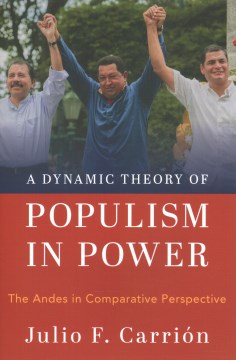
A Dynamic Theory of Populism in Power
The relationship between populism and democracy is a hotly debated topic. Some believe that populism is inherently bad for democracy because it is anti-pluralist and confrontational. Others argue that populism can reinvigorate worn-out democracies in need of an infusion of greater popular participation. This book advances this debate by examining the empirical relationship between populism in power and democracy in five Latin American countries. These cases reveal that populism in power does not always lead to the demise of democracy; rather, it does so only under certain varieties of populism. When populist chief executives are bent on using the state's repressive apparatus to subvert democracy, and enjoy significant public support, then it requires anextraordinary effort by both the opposition and the judiciary to contain their efforts at power aggrandizement. If they succeed in overcoming societal and institutional resistance, then an unconstrained variety of populism in power will materialize. The significant power asymmetry that this variety entails will lead to the demise of electoral democracy. If populist leaders are constrained by the judiciary and other institutional actors, then electoral democracy will be preserved, at least for a while. Ofthe five cases of populist presidents studied here, four were able to rule unconstrained, and only one the populist was contained. The book offers a theory to explain this divergent outcome. There is a recognizable pattern in the trajectory of populism in power, with one path leading to democratic erosion and another to democratic survival--

